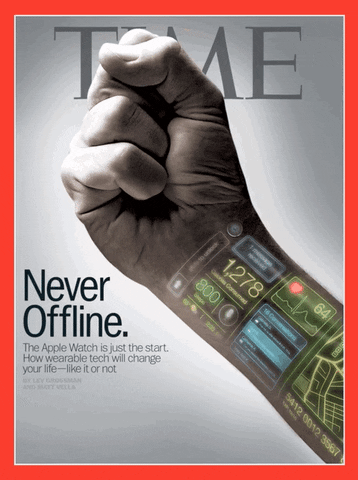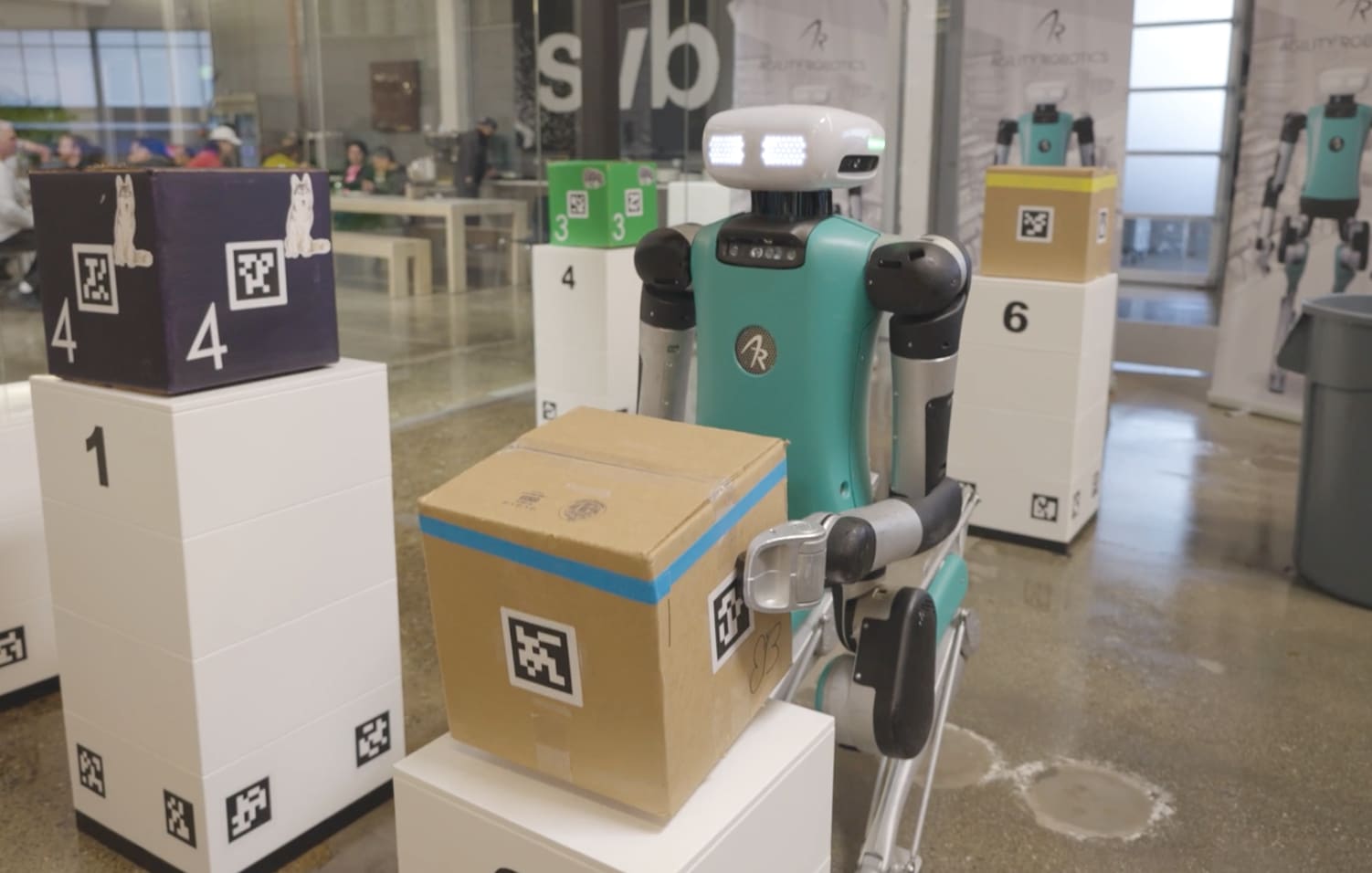- TECHSWU
- Posts
- TECHSWU #71
TECHSWU #71
Welcome to TECHSWU, your go-to destination for all things tech that matter in your daily life!



The iPhone 16 is set to be unveiled in two months, and it is expected to come with several game-changing features. One notable upgrade is the new battery technology, which provides increased capacity and density for longer usage times and better overall performance.
The display of the iPhone 16 is also set to impress, with a 20% increase in brightness and thinner bezels for a more immersive screen experience. Under the hood, the iPhone 16 will be powered by the A18 chip with AI capabilities, ensuring seamless performance and efficiency.
Photography enthusiasts can look forward to sharper photos and videos with the potential use of Samsung camera sensors and a 48-megapixel Ultra Wide camera. The design of the iPhone 16 Pro models will also feature a polished titanium finish for elegance and durability.
Additionally, Apple has redesigned the MagSafe technology for improved performance and faster charging. The iPhone 16's new housing design also makes battery replacement easier, enhancing longevity and convenience for users.
Overall, the iPhone 16 promises to deliver an unparalleled mobile experience with its advanced features and powerful hardware.

Virgin Media is offering a free LG TV to new customers who sign up for select TV plans. Customers who choose the "Bigger" plan will receive a 43-inch smart TV worth £250 ($331), or they can opt for a £250 bill credit.
The offer is available for the following plan options: Bigger Movie Combo Bundle, Bigger Sports HD Combo Bundle, Biggest Combo, and Mega Volt Bundle. Virgin Media's deal is an attractive option for customers looking to commit to an 18 or 24-month contract as part of their budget.
Other competing providers, such as Sky, are also offering discounts and deals, so shoppers should compare options before making their decision.

Calyo, Benedex Robotics, and Cranfield University have partnered to develop a new safety sensing platform for self-driving vehicles. The platform, which is part of Calyo's DRIVEN BY SOUND project, utilizes 3D ultrasound technology to allow autonomous vehicles to sense their surroundings in real-time.
This technology enhances existing safety detection systems by providing an additional layer of safety and dependability. The collaboration combines Calyo's 3D ultrasound sensor technology, Benedex's safety platform expertise, and Cranfield University's experience in integrating and testing autonomous vehicles.
The final product will offer improved safety features for self-driving cars and will be applicable across various vehicle platforms. The project is scheduled to be completed in the first half of 2025, with a vehicle prototype equipped with this technology being showcased at Cranfield University's testing facility.


Chrysler's new concept car, the Halcyon, could point towards a high-tech future for the brand. The Halcyon showcases a range of innovative features, from augmented reality displays to AI smart trip planning, biometric security, and autonomous driving capabilities.
While some of the more advanced features showcased in the concept may not make it to market in the near future, others are already becoming common in the automotive industry, such as personalized infotainment systems and wireless charging for smart devices. Chrysler has also shown interest in self-driving technology, and the Halcyon features the STLA Brain, an artificial intelligence system that enables autonomous driving.
Full autonomous driving is seen as a logical step for Chrysler in the future. Overall, the Halcyon concept demonstrates Chrysler's commitment to alternative fuel solutions, tech innovations, and autonomous driving.

Scientists at Bristol University have developed a new wearable technology called "SeamSleeve" that tracks movement via conductive threads stitched into clothing seams. The technology uses harmless electrical signals that can sense movement and is powered wirelessly through a mobile phone placed in the pocket.
The researchers believe that this technology has the potential to be more accurate than existing wearable fitness devices and can be implemented without altering current manufacturing processes. The motion tracking offered by SeamSleeve could be used by smartphone apps to match body movement with specific postures or gestures such as physiotherapeutic exercises.
This development suggests that wearable technology will become even more integrated into our clothing, offering convenience and improved accuracy in fitness tracking.


Smartwatches have become an essential accessory for tech enthusiasts, combining communication and functionality on the wrist. This article highlights some of the best smartwatches available in India for under Rs 10,000.
The pTron Reflect Pro is the first on the list, featuring an attractive design and a clear touch display. It offers Bluetooth calling and a battery life of 1-5 days.
The Fastrack FS1 Pro Smartwatch is another affordable option with a curved Super AMOLED display and a large screen size. It supports SingleSync BT Calling and has a long battery life of up to 7 days.
The Noise Pulse-2 Max offers Bluetooth calling and noise level tracking, while the Fire Boltt Ninja-3 is a medical device that can monitor vital signs. These smartwatches combine style and functionality, making them the perfect choice for tech enthusiasts on a budget.


A majority of CFOs lack a comprehensive understanding of artificial intelligence (AI), according to several surveys conducted by different organizations. While many CFOs acknowledge the potential of AI to transform business operations, they struggle with the practical implementation and are not fully knowledgeable about the subject.
Only 49% of CFOs consider themselves "very knowledgeable" about AI, and an even smaller percentage claim to have a "strong" grasp of AI in finance specifically. This knowledge gap poses a challenge as CFOs are increasingly responsible for deploying AI tools within their companies.
The surveys indicate that CFOs are aware of the gap and recognize the need for greater understanding and education in this area. The current demand for CFOs with AI knowledge highlights the growing importance of technological expertise in finance leadership roles.

Facebook co-founder Mark Zuckerberg is preparing to showcase Meta's latest augmented-reality (AR) glasses prototype, which he claims will be the "most advanced piece of technology on the planet in its domain". In an interview with YouTuber Kane Sutter, Zuckerberg expressed his excitement for the upcoming glasses, stating that everyone he has shown them to so far has had a positive reaction.
The glasses, which are being developed by Meta, will have a consumer-friendly design and will not be available for purchase for some time. Zuckerberg noted that the prototype is not the most stylish but will have thicker frames to accommodate the AR technology.
He also emphasized that it would take a few years before the AR glasses start to generate substantial returns.


AI-powered robots are being developed by companies like Tesla, Amazon, Microsoft, and Nvidia to help solve the global labor shortage. These humanoid robots are designed to perform tasks that are typically done by humans and are currently being deployed in warehouse settings.
However, experts believe that their applications could extend to homes and offices in the future. The market for humanoids is expected to reach $38 billion in the next 20 years, with Goldman Sachs predicting that they will become a "must-have" device, similar to smartphones or electric vehicles.
Recent advancements in artificial intelligence have led to a renewed optimism in the industry, as robots are now able to interpret language and commands, make decisions, and learn from real-world scenarios. The global labor shortage, particularly in manufacturing, is another driving factor for the development of humanoid robots.
Despite the potential, there are still challenges such as cost and safety concerns that need to be addressed before mass adoption can occur.


Researchers at MIT and UCSD have developed a new immersive remote control system for robots called "Open-TeleVision" that enables human operators to perceive the robot's surroundings and mirror their hand and arm movements. The system creates a seamless interface between human intelligence and robotic bodies, leveraging the adaptability, intuition, creative problem-solving, and ethical decision-making capabilities of humans.
Potential applications include disaster response, telesurgery, space exploration, and industrial maintenance. Open-TeleVision works by streaming the operator's hand, head, and wrist poses to a server, which then sends joint position targets to control the robot's movements.
The system allows for long-distance operation, enabling remote control of robots via the Internet. The researchers are also exploring ways to combine their human-control system with AI assistance for improved performance.
This research challenges the notion that AI-powered robots are the future of robotics and highlights the importance of human intelligence in next-gen robotic automation.

Indian robotics innovator Kody Technolab saw a 5% increase in its stock price after receiving an export order worth about INR 70.67 crore (approximately $9.
5 million). The order includes three types of robots: a serving robot, an advertising robot, and a cleaning robot.
Kody Technolab aims to deliver these robots within the next five months. This is not the company's first export order; in January, it received an order worth INR 30 crore (about $4 million) for serving robots from multiple customers.
In terms of financials, Kody Technolab generated INR 22.45 crore ($3 million) in operating revenue in the fiscal year 2023-24, a 103.
6% increase from the previous year, and its net profit grew by 67.5%.
The company is a leader in software and robotics development and offers a range of services, including artificial intelligence robotics, IT consulting, web app development, and IoT services.


The King Faisal Specialist Hospital & Research Centre in Saudi Arabia has achieved a remarkable milestone in its Robotic Cardiac Surgery Program. The hospital has successfully performed 400 robotic cardiac surgeries with a survival rate of 98%, setting a new standard in surgical excellence.
The program, which started with 105 procedures in its first year, has now reached this significant milestone. The hospital attributes the success of these surgeries to reduced blood transfusions and shorter durations of mechanical ventilation, which allows patients to recover faster and experience fewer complications.
The hospital has also performed robotic multi-valve operations, aortic valve replacements, and other intricate procedures. Additionally, it is worth noting that the hospital is the only one globally to perform robotic cardiac surgeries on children.
This achievement marks a major advancement in the field of robotic surgery and showcases the hospital's commitment to providing exceptional healthcare.


The International Institute for Management Development (IMD) has released its 2024 Smart City Index, ranking the top 10 smartest cities in the world. The index assesses 142 smart cities worldwide based on factors like infrastructure, technology, and quality of life for citizens.
The top-performing cities have implemented initiatives that focus on improving quality of life, such as creating green spaces, expanding cultural events, and promoting social bonding. European and Asian cities dominate the rankings, while North American cities have slipped.
The smartest city in the world for 2024 is Zurich, Switzerland, followed by Oslo, Norway, and Canberra, Australia. While four Indian cities (Delhi, Mumbai, Bengaluru, and Hyderabad) made the list, they didn't rank among the top performers.
The Indian government launched the National Smart Cities Mission in 2015 to develop sustainable and citizen-friendly smart cities across the country.



